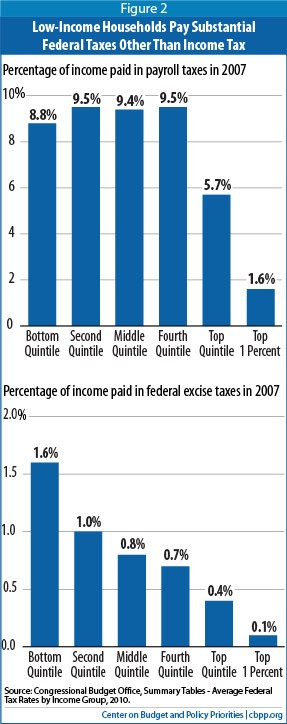I have no idea whether or not Mitt Romney will run for president, and if he does, if he will get the nomination. But many of the issues he ran on when he was a candidate in the last election are likely to reappear this time around no matter whom the candidates turn out to be.
One of the fiercely debated issues in the last presidential election was taxation of the wealthy, and Republican proposals similar to those Romney made when he ran against Obama –– lowering or eliminating the taxes on capital gains, interest, dividends, and inheritances –– will undoubtedly arise again. I expect Republicans will throw a few bones to the middle class in an attempt to get the support of this important constituency, but I also expect the thrust of the proposals to be the same old supply-side policies favoring the wealthy that we have seen in the past.
Related: How Income Inequality Can Hurt the Economy
What I want to focus on, however, is the economic arguments that are made to support the ideological goal of low taxes. The main argument is that taxes cause distortions that lead us away from the best allocation of our resources, and this reduces economic growth. A particular type of distortion –– that taxes reduce the reward from innovative, job creating, growth enhancing economic activity and this reduces the effort that the wealthy are willing to devote to it –– is often at the forefront of these arguments.
Taxes do cause distortions, and we ought to raise revenue in a way that minimizes distortions so long as it doesn’t undermine our desire for equity in tax burdens. There are, of course, different ideas about what is equitable, and the efficiency benefits from reducing taxes on the wealthy have been overstated by a considerable margin by tax cut advocates. But the basic idea that, for a given degree of equity, taxes should produce the smallest possible distortions to economic activity is hard to disagree with.

Is it true that increasing taxes on the wealthy will always cause a reduction in economic growth? If we tax the wealthy at, say, 50 percent, and the reward from a new, innovative product is only $50 million instead of $100 million, would that reduce effort? Would you work any less for “only” $50 million?
There is likely a margin at which such a reduction in the reward for effort matters, a promise of $80,000 per year is a lot different from a promise of $40,000, but this can be overcome through progressive taxation. Taxes on the wealthiest households, even taxes that are quite large, are unlikely to have much of an effect, if any, on innovative activity.
Related: Anti-Tax GOP Governors Find it Hard to Hold the Line
Some types of taxes on the wealthy may even enhance economic growth. There is mounting evidence, for example, that too much inequality reduces growth, so taxes that are used to promote equality can also promote growth. In addition, economic growth can be increased through a large estate tax on the wealthiest households. I have no doubt that some wealthy individuals have a desire to give their heirs a large inheritance, and that this provides motivation. But I also have no doubt that large inheritances move us away from a meritocracy –– the very foundation of a capitalist system.
Wealth gives some people advantages over others who are equally talented and meritorious, advantages they did nothing to deserve except having the right parents. The wealthy have access to better education, highly valuable social networks, more educational opportunities outside the classroom, and so on.
That alone is cause for concern, but there is more. The very thing that conservatives worry about with social programs, the (largely unfounded) worry that payments to the needy will seriously undercut motivation on a wide scale, is certainly present for those who receive large inheritances. As Buttonwood at the Economist says while discussing Thomas Piketty’s concerns about inherited wealth, “History, as well as fiction, suggests that being born to inherited wealth is not normally a spur to greater effort; instead, life is devoted to social display or indolence.”
Wealth that is earned rather than inherited is more defensible; though there are legitimate questions about how much of this wealth is truly the result of an individual’s effort rather than from luck, the help of society, and political and economic power that distorts the flow of income. A meritocracy is undermined when workers are not paid what they are worth –– when the income workers have earned through hard work is misdirected to those at the top. Hence, there are legitimate questions about how much of the income and wealth of those at the top should be reclaimed and redistributed through taxation.
Related: Obama’s Budget Strategy Taxes the Rich to Give to the Middle Class
When each individual strives to get ahead, when we truly have an equal opportunity meritocracy that rewards each individual according to her contributions, we collectively propel ourselves forward. The more people who are subject to this meritocracy rather than relying upon inherited wealth, the faster we will grow.
It’s time to do away with the myth that taxing the wealthy always reduces our economic potential, a myth that serves the ideology of the right. A tax system that reduces inequality of the type that diminishes economic growth reclaims income that should have flowed to workers in the first place, and helps to move us toward the meritocracy that underlies our national identity and fuels our economic system is in our collective interest.
We should not allow ideological arguments dressed up as economic facts, arguments that serve wealthy interests but have little foundation, to deter us from pursuing what’s best for the vast majority of Americans.
Top Reads from The Fiscal Times:






